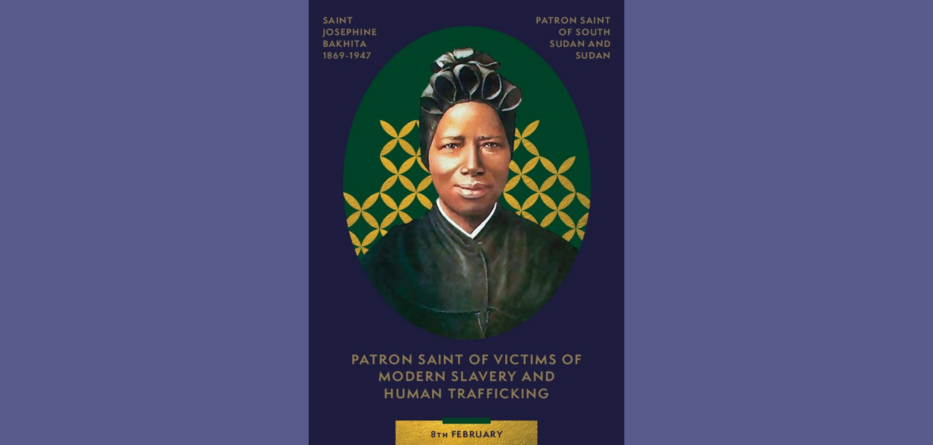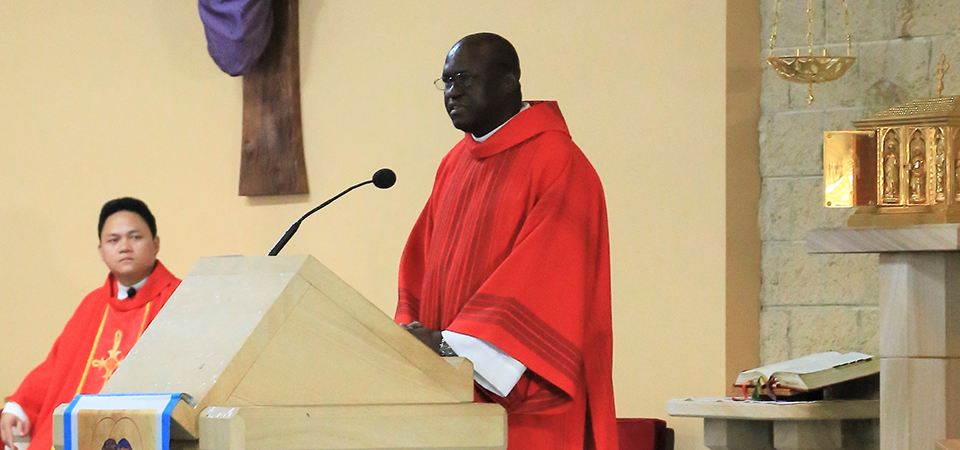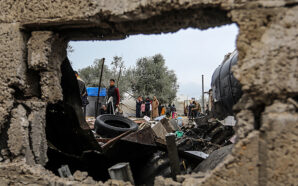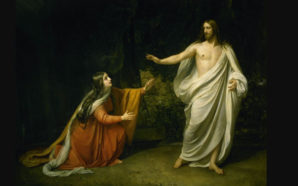The year is 1877. Arab slave traders invade the Sudanese village of Olgossa. Their practice of abducting children and forcing them into slavery is feared, and it is for this they have come.┬Ā Among the children they seize, is a young girl of seven or eight years old. The daughter of a respected village leader, she has lived a carefree life in a loving family. Her captors force her to walk 950 kilometres barefoot. She is sold several times along the way and endures unimaginable punishments and torture. Over time, she forgets her own name, adopting the name the slavers call her: Bakhita, or ŌĆ£luckyŌĆØ.┬Ā
Through the kindness of the prosperous Italian family to whom she was eventually given, Bakhita learnt about God and Christianity. She converted to Catholicism and entered the convent of the Canossian Daughters of Charity as Sr Josephine Bakhita. Bakhita was canonised in 2000 and declared the patron saint of Sudan, of South Sudan, and of victims of modern slavery and human trafficking.┬Ā Her feast day, which we celebrate today, is also the World Day of Prayer, Reflection and Action Against Human Trafficking.┬Ā
Download the St Josephine Bakhita prayer card and access prayer and liturgy resources for the World Day of Prayer, Reflection and Action Against Human Trafficking.┬Ā
Slavery may seem like an archaic or old-fashioned practice, but it is still a reality for many people around the world. Deacon John Cinya, who serves the community of Mary, Queen of the Family parish in Blacktown and who came to Australia as a refugee from South Sudan, says St Josephine BakhitaŌĆÖs experience of captivity and slavery is felt by many in South Sudan.┬Ā┬Ā
ŌĆ£Children are still forcefully taken from South Sudan by Arab slave traders, mistreated, converted to Islam and sold in the north of Sudan, and their parents and relatives cannot even trace their location. People work with no pay, are abused, or are smuggled with the false promise of a good wage and a good life,ŌĆØ he says.┬Ā┬Ā
Human trafficking and slavery even touches the lives of those in Australia. Deacon John identifies exploitation and slave labour as realities which can easily go unnoticed. ŌĆ£Some people are paid only minimum wage, some work cash on hand with no employment contract, some have no work cover if they are injured, and young girls are made to work in the sex industry. This is slavery,ŌĆØ he says.┬Ā┬Ā
Video credit: Be Slavery Free
While the continuing COVID-19 wave has meant the Diocese of ParramattaŌĆÖs scheduled Mass for the feast of St Josephine Bakhita was postponed, there are many ways in which individuals and families around the Diocese can commemorate St Bakhita and the victims of modern slavery and human trafficking.┬Ā┬Ā
Sebastian Salaske-Lentern, Peace, Justice and Ecology Coordinator with the Diocese of ParramattaŌĆÖs Mission Enhancement Team (MET), and member of the Diocesan Modern Slavery Working Group, identifies practical ways in which the day can be celebrated. ┬Ā
ŌĆ£Parishes and schools are encouraged to commemorate St Josephine Bakhita locally, to celebrate and thank God for the gifts that the South Sudanese and Sudanese communities contribute to our society, and to commemorate the victims of modern slavery and human trafficking in Australia and worldwide,ŌĆØ he says.┬Ā┬Ā
Sebastian names several significant initiatives of the Catholic Church to end modern slavery. The Australian Catholic Anti-Slavery Network (ACAN) was launched in December 2019 and brings together 56 Catholic dioceses and agencies across healthcare, aged care, education and welfare sectors to commit to compliance with AustraliaŌĆÖs Modern Slavery Act and develop their own Modern Slavery Statement. ACRATH (Australian Catholic Religious Against Trafficking in Humans) combines the institutional change of ACAN with raising awareness at a grassroots level through workshops and campaigns.┬Ā┬Ā
In 2020, our own Diocese of Parramatta published its first Modern Slavery Statement. Sebastian says this has been a long but fruitful process. ŌĆ£With Moses Opondo, the official Modern Slavery Liaison Officer, CEDP and Chancery are now in the process of getting all their suppliers onboard with SEDEX, an organisation that will help them manage their supply chains and remove any suspected modern slavery,ŌĆØ he says. ŌĆ£The Diocesan Modern Slavery Working Group┬Āwould love to bring this onboarding process forward in 2022, and raise more awareness for modern slavery and human trafficking among our staff, parishes and schools.ŌĆØ┬Ā
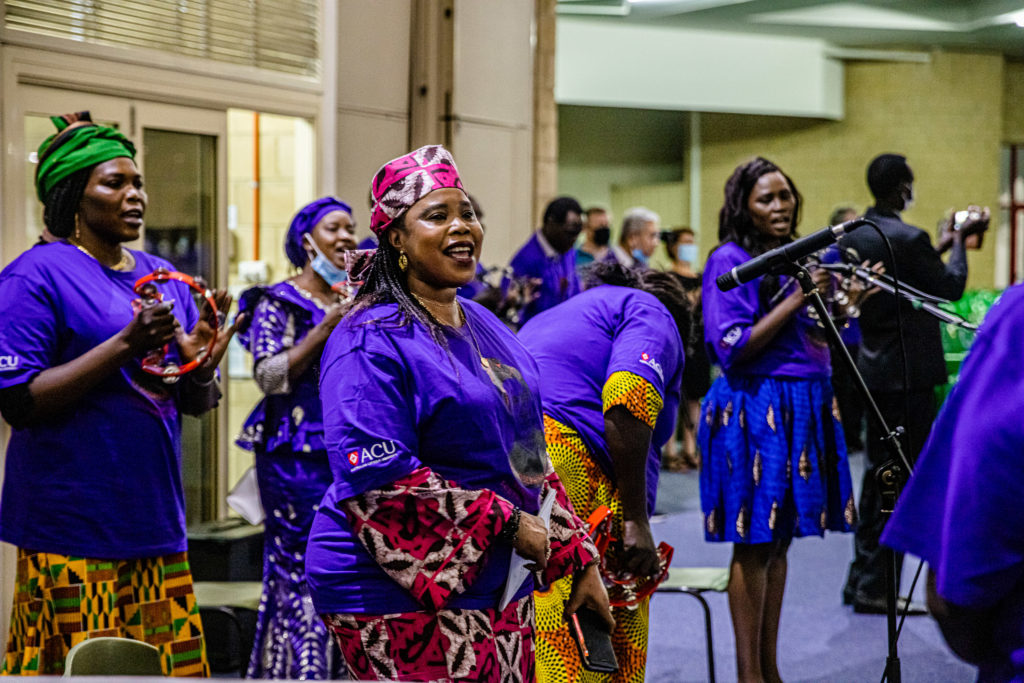
Members of the South Sudanese choir during the Mass for the Feast Day of St Josephine Bakhita at Mary, Queen of the Family Parish, Blacktown, Monday, 8 February 2021. The Mass has been postponed this year due to the pandemic. Image: Diocese of Parramatta
While Sebastian says raising awareness is a big task, he suggests parishes and schools connect with organisations like ACRATH to learn more about how they can be involved. ŌĆ£A speaker could give a presentation or run a workshop. Individuals can tune into the ACRATH Conversation Series, or find great resources on their website,ŌĆØ he says. With Easter approaching, we can get involved in ACRATHŌĆÖs Slavery-Free Easter campaign, which promotes buying only fair trade and slavery-free chocolate as an effort to end the industry which engages almost two million children worldwide in forced labour or unsafe working conditions.┬Ā
RELATED: St Josephine BakhitaŌĆÖs legacy in Australia today
St Josephine BakhitaŌĆÖs life of trust, humility and service has made a deep impact on many around the world, especially those in her native Sudan. Deacon John describes St Bakhita as an inspiration, especially for those who, like him, have experienced life as refugees. ŌĆ£We tell our children what we have been through in the refugee camps. Like St Bakhita, when we were in the camps we didnŌĆÖt know where our lives would end. Every Sudanese family has St BakhitaŌĆÖs photo in their house.ŌĆØ┬Ā
Deacon John says St BakhitaŌĆÖs simple, humble life leaves us with an example of hope. ŌĆ£St Bakhita taught us to have hope, to believe in our God, who always saves his people from all sufferingsŌĆØ, he says. St Bakhita also inspires us to bear witness to the Gospel, Deacon John says. ŌĆ£She came to know God, who changed her life and gave her the opportunity to love her enemies. She inspires us to forgive and to think of the dignity of all people, especially those who face exploitation.ŌĆØ┬Ā
┬Ā
For details on how to purchase fair trade and slavery-free Easter eggs, go to the ACRATH website here.┬Ā
*This article has been updated to correctly attribute the video to Be Slavery Free.




